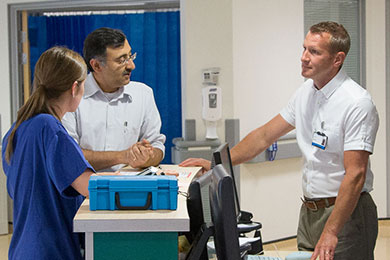The UK Sepsis Trust (UKST) is lending its voice to Group B Strep Support’s campaign asking for Group B Strep to be made a notifiable disease by the Department for Health and Social Care (DHSC).
Other charities calling for the change, which would make it a legal responsibility for Group B Strep infections in newborns to be reported, include Bliss, Meningitis Research Foundation, Meningitis Now and The Lullaby Trust.
Newborn screening has not been recommended by the UK National Screening Committee.
UKST Founder & Joint CEO Dr Ron Daniels said: “Group B Strep is the most common cause of life-threatening infections in newborn babies and can progress to sepsis, so as a charity that supports those affected by this condition, we support this call for invasive group B Streptococcal infection be added to Schedule 1 of the Health Protection Regulations.”
The list of notifiable diseases is under review for the first time since 2010 as part of proposed amendments to The Health Protection (Notification) Regulations 2010 (HPNR).
This gives the UK the opportunity to integrate Group B Strep into the list and be a trailblazer in implementing systematic data gathering, which can protect the very youngest and most vulnerable in our society.
Write to your MP
Use Group B Strep Support’s easy tool to send a pre-drafted email urging your local MP to support making group B Strep infection notifiable https://groupbstrep.good.do/countallgroupbstrepinfections/email-your-mp/
What is Group B Strep?
Group B strep is a type of bacteria called streptococcal bacteria, which is very common in both men and women and usually lives in the rectum or vagina.
Normally harmless, it affects 2-4 women in 10 according to the NHS, but can spread to babies from pregnant women and make young babies very ill.
Group B Strep causes serious infection in infants and is a major cause of neonatal mortality and morbidity. As things stand, the lack of formal reporting limits prevention, early detection, and measurement of the effects of any interventions.
What does Group B Strep have to do with sepsis?
Sepsis is a life-threatening condition that arises when the body’s response to an infection injures its own tissues and organs.
It occurs when the body’s immune system – which normally helps to protect us and fight infection – goes into overdrive. It can lead to shock, multiple organ failure and sometimes death, especially if not recognised early and treated promptly.
Sepsis always starts with an infection, and can be triggered by any infection including Group B strep.
Learn more about sepsis – get Sepsis Savvy.



